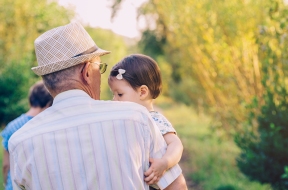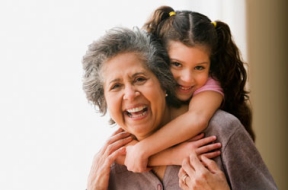

Grandparents who help out occasionally with childcare or provide support to others in their community tend to live longer than seniors who do not care for other people, according to a study from Berlin, Germany. Having full-time custody of grandchildren can have a negative effect on health, but occasional helping can be beneficial for seniors, the researchers write in the journal Evolution and Human Behavior. The participants completed interviews and medical tests every two years between 1990 and 2009. The researchers did not include any grandparents who were the primary caregivers for their grandchildren, only those who cared for grandchildren occasionally. The study team compared this group with seniors who provided support for non-family members, such as friends or neighbors, and seniors who did not provide any care to other people.

Overall, after accounting for grandparents’ age and general state of health, the risk of dying over a 20-year period was one-third lower for grandparents who cared for their grandchildren, compared with grandparents who did not provide any childcare. Half of the grandparents who cared for grandchildren were still alive ten years after the initial interview. The same was true for participants who did not have grandchildren but supported their adult children in some way, such as helping with housework. In contrast, about half of the participants who did not help others died within five years of the start of the study. Caregiving was linked with longer life even when the care recipient wasn’t a relative. Half of all childless seniors who provided support to friends or neighbors lived for seven years after the study began, whereas non-helpers lived for four years on average.









